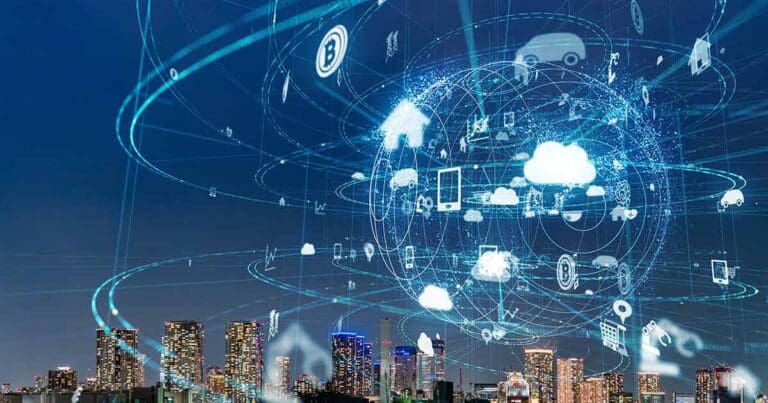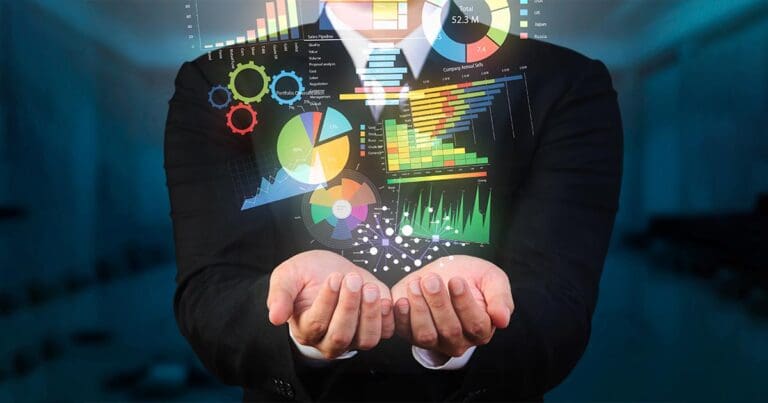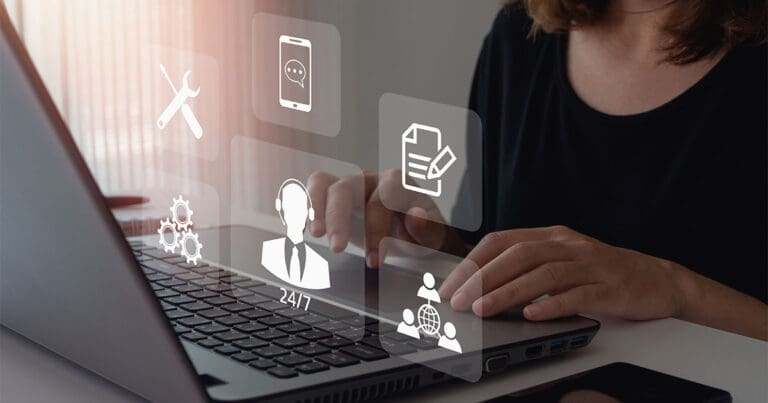The Impact of IoT: How Real-Time Monitoring is Transforming Industries

The Internet of Things (IoT) is revolutionizing the way industries across the board are doing business.
With real-time monitoring and data collection capabilities, companies have an unprecedented window into their operations and can make smarter, more informed decisions.
Explore how IoT is transforming industries by enabling real-time monitoring and data collection, and find examples of where the future of this technology may take us.
What is real-time monitoring?
Real-time monitoring is an essential component of IoT (Internet of Things) and data collection.
It involves collecting data from various sources in real time, allowing employers and hiring managers to gain insight into their operations or other activities.
Real-time monitoring can provide valuable information such as resource usage, performance metrics, customer behaviors, and more.
This data can then be analyzed to gain valuable insights that can help guide strategies, identify opportunities and risks, drive efficiency, reduce waste, increase customer satisfaction, and more.
How is IoT transforming industries?
IoT is transforming a variety of industries like healthcare, manufacturing, transportation, agriculture, and engergy & utilities by enabling real-time monitoring and data collection.
Healthcare Industry
The implementation of IoT throughout the healthcare industry has allowed for advancements such as real-time patient monitoring and remote care.
Not only that but the use of these technologies has been shown to improve patient outcomes and reduce healthcare costs.
Manufacturing Industry
Implementation of IoT in smart factories and industrial automation can help to improve operational efficiency, reduce costs, accelerate product development, and improve customer satisfaction.
It allows for real-time monitoring of data such as machine performance, temperature, etc. This data can then be used to identify problems quickly and take corrective action.
Transportation and Logistics Industry
IoT applications for fleet management, asset tracking, and supply chain optimization have allowed transportation and logistics companies to provide more efficient services and better serve their customers.
The real-time monitoring of vehicles, drivers, deliveries, and goods in transit can help to maximize efficiency and reduce costs for carriers and shippers alike.
Agriculture Industry
Utilizing IoT for smart farming, precision agriculture, and crop monitoring is helping to revolutionize the agriculture industry.
Real-time monitoring of weather, soil conditions, and other environmental factors can help farmers make more informed decisions about crop management, enhancing crop yields, resource efficiency, and sustainability through IoT.
Energy and Utilities Industry
IoT-enabled smart grid systems for energy management and grid optimization can help power and utility companies to monitor energy usage, detect system outages, improve customer service, reduce costs, and increase efficiency.
The future IoT trends and innovation
Several emerging IoT trends and innovations include edge computing, fog computing, AI & machine learning, smart cities, and IoT connected devices.
Edge Computing in IoT
Edge computing is a form of distributed computing that takes place at the edge of the network.
It reduces latency and enables real-time processing and analytics, making it ideal for applications such as IoT.
As more businesses embrace this technology, we can expect to see greater integration between edge computing and IoT in the future.
Fog Computing in IoT
Fog computing is a concept similar to edge computing, but it takes place at an intermediary point between the edge of the network and the cloud.
It allows for further decentralization and distributed architecture of an IoT system, providing real-time data processing capabilities that can enable faster decision-making.
AI & machine learning in IoT
The integration of AI and machine learning into IoT systems can further enhance the capabilities of IoT by providing predictive analytics, pattern recognition, and self-learning algorithms.
These technologies can help to improve the accuracy of data collection, enable smarter decision-making, reduce downtime, and provide a more seamless user experience.
IoT smart cities
IoT-powered smart cities are becoming increasingly popular as governments and municipal authorities look to leverage the power of connected devices to improve urban living.
These cities rely on the implementation of IoT technology to provide real-time data collection and analysis, optimize processes such as traffic management, energy usage, waste management, etc., and ultimately provide a better quality of life for citizens.
The potential of IoT in the development of smart cities is immense and we can expect to see an increase in these projects in the near future.
IoT connected environments
IoT technology is becoming increasingly prevalent in homes, offices, and other connected environments.
This is allowing devices to be connected and controlled remotely, enabling the automation of basic tasks such as lights, climate control, safety systems, etc.
The implementation of IoT in these settings can provide convenience for users while increasing efficiency and reducing costs.
Challenges of IoT implementation
There can be challenges when it comes to IoT implementation that include security and privacy, scalability and interoperability, technology ethics, data management, and regulatory compliance.
IoT security and privacy concerns
The vast amount of data collected and shared by IoT devices can create a significant security risk if the appropriate measures are not in place.
In addition, users must be aware of the privacy implications of this technology as personal information may be leaked or misused without proper safeguards.
IoT scalability and interoperability
The scalability and interoperability of IoT systems are key considerations when implementing this technology.
IoT networks must be capable of scaling up with new devices and applications, as well as being able to easily integrate with other systems.
IoT technology ethics
As this technology becomes more prevalent, it is important to consider the ethical implications of IoT implementation.
Questions such as data ownership and usage, user safety, etc., must be taken into account when developing these systems.
IoT data Management & analytics
The amount of data generated by IoT devices can be overwhelming, and managing this data effectively is a major challenge.
Therefore, it is important to adopt an effective system of data management and analytics in order to make the most of the insights provided by these connected systems.
Standardization & regulatory compliance in IoT
IoT is an evolving technology and the lack of standardization can make it difficult to ensure compliance with data regulations, privacy laws, etc.
Standardization initiatives such as the AllSeen Alliance or Open Connectivity Foundation are helping to address this issue by defining specific protocols and guidelines for IoT implementations.
IoT and real-time monitoring across industries
The potential of IoT to revolutionize various industries is enormous and the possibilities are truly endless.
Businesses across a variety of sectors can take advantage of IoT technology, by integrating it into their existing operations and leveraging its powerful capabilities to enhance customer experience, improve operational efficiency, reduce waste, and much more.
Looking to hire top-tier Tech, Digital Marketing, or Creative Talent? We can help.
Every year, Mondo helps to fill over 2,000 open positions nationwide.
More articles about hiring and industry trends:
- How to Build Employee Engagement in a Remote Workforce
- Google Analytics 4: What Your Organization Needs To Prepare
- Big Tech Job Cuts Don’t Mean Demand for Tech Professionals Is Over
- Challenges Faced by the Banking Industry in the Digital Age
- The World of Robotics: Industries Leveraging Robotics Engineers
- How to Use Digital Transformation to Stay Ahead in the Manufacturing Industry
- Salesforce Admin Jobs to Hire to Get the Most Out of Your Investment
- Benefits of Digital Transformation in Healthcare with Examples
- HR Technology in Hiring: Streamlining Your Recruitment & Onboarding



